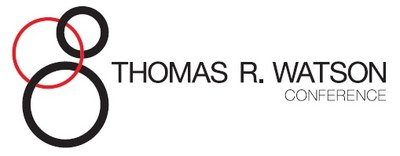Call For Proposals 2018

The Twelfth Biennial Thomas R. Watson Conference on Rhetoric & Composition University of Louisville, October 25-27, 2018
Download the Call for Proposals as a PDF
Making Future Matters
Today’s social and political climate raises important questions about contemporary knowledge-making practices in relation to the work we do and how we do it. For example, everyday we are confronted with questions that ask us: What are facts and who gets to decide? How do ideas assemble and circulate, and how does that activity inform their uptake? How can individuals and things shape these practices? These questions are not new, but given their exigence, the twelfth biennial Thomas R. Watson Conference on Rhetoric and Composition asks scholars to address the role of our work within shifting educational landscapes and larger publics. Specifically, this conference invites scholars to explore the ways that our work comes to matter, for whom, to what ends, and how we might direct that work to encourage futures that matter.
We use the concept of matter and mattering in two ways, both addressing how we might direct our work toward material futures. First, we use matter colloquially to ask, what are our pressing concerns and why are they significant? What matters to our work, and to whom/what does our work matter? Second, we use matter methodologically, to ask how our work materializes (in) the world. How do we examine and represent the material entanglements that become our research? How do our interconnected ways of thinking, knowing, and being in the world shape who and what are made/made legible in our articulations? Emerging from both lines of inquiry is detailed attention to the questions we ask, the partners we engage, and the theories/methodologies we draw upon to pursue our work of mattering.
We invite individual abstracts, panel presentations of 3-4 participants, and maker-workshops to pursue questions such as:
- How might the work of rhetoric and composition matter within shifting educational landscapes and larger publics?
- What future-oriented practices, pedagogies, theories, or methodologies might we articulate for making our work matter?
- How can these uncertain futures and a focus on the consequences of our work direct our labor?
- With what stakeholders do we inter- and intra-act?
- In what ways does/should our work matter beyond the university, and for whom?
- How might we (re)consider our work in light of newer practices of engagement and circulation?
KEYNOTE SPEAKERS
Laurie Gries, U of Colorado Boulder
Steve Parks, Syracuse U
Octavio Pimentel, Texas State U
Paul Prior, U of Illinois Urbana-Champaign
Jacqueline Rhodes, Michigan State U
Melanie Yergeau, U of Michigan
FEATURED SPEAKERS
Cheryl Ball, Wayne State U
Christina Cedillo, U of Houston-Clear Lake
Bill Hart-Davidson, Michigan State U
Rebecca Dingo, U of Massachusetts Amherst
Jeffrey Klausman, Whatcom Community College
Jabari Mahiri, U of California Berkeley
Laura Micciche, U of Cincinnati
Beverly Moss, The Ohio State U
Derek Mueller, Eastern Michigan U
Rebecca Rickly, Texas Tech U
Kevin Roozen, Central Florida U
Annette Vee, U of Pittsburgh
MODERATOR
Gesa E. Kirsch, Bentley University
THOMAS R. WATSON 2018 CONFERENCE TEAM
Mary P. Sheridan, Director
Joe Franklin, Assistant Director
Ashanka Kumari, Assistant Director
SUBMIT A PROPOSAL
Proposals are due by 11:59 PM EST on March 26, 2018 and can be submitted at the conference website: watsonconference.com. Proposal options include:
If you have any questions, feel free to email us at watson@louisville.edu
